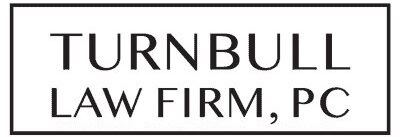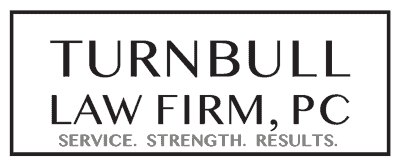Questions & Answers About Accident & Injury Claims
What are common causes of accidents that result in personal injury claims?
What types of cases do personal injury law firms handle?
Car Accidents: Injuries involving passenger vehicles.
Truck Accidents: This includes incidents with big rig trucks, commercial trucks, UPS trucks, 18-wheeler trucks, garbage trucks, commercial vehicles, FedEx trucks, Amazon trucks, semi-trucks, tractor trailers, and company vehicles.
Motorcycle Accidents: Injuries involving motorcycles and other two-wheeled vehicles.
Other vehicle accidents where drivers, passengers, or pedestrians might be injured.
Slip and Fall: Also known as premises liability cases, these involve injuries that occur due to unsafe conditions on someone's property.
Product Liability: These cases involve injuries caused by defective or dangerous products. Manufacturers, distributors, or retailers can be held responsible.
Workplace Injuries: While many of these are covered by workers' compensation insurance, there are circumstances where an injured worker can sue outside of the workers' comp system.
Dog Bites and Animal Attacks: Owners can be held responsible if their animals cause harm to others.
Wrongful Death: Claims made by family members when a loved one dies due to the negligence or misconduct of another.
Assault and Battery: While these are also criminal cases, victims can sue for damages in civil court as well.
Toxic Torts: Cases involving harm caused by exposure to toxic substances, like asbestos or hazardous waste.
Birth Injuries: Injuries to a baby or mother during childbirth due to medical negligence.
Pedestrian Accidents: When someone walking gets injured by a vehicle or due to property hazards.
Recreational Accidents: Injuries sustained during recreational activities, such as boating, biking, or using playground equipment.
These are just some of the more common types of personal injury cases. The underlying principle in all these cases is that someone was harmed due to the negligence or intentional act of another, and they may be entitled to compensation for their injuries.
What types of damages can an injury lawyer help me get compensation for?
Medical Expenses: Compensation for current and future medical bills resulting from the injury, including hospital stays, surgeries, medications, physical therapy, and any other necessary treatments.
Lost Wages: Compensation for income you've lost while recovering from your injury and potential future earnings if you're unable to return to work or if your earning capacity is diminished due to the injury.
Pain and Suffering: Compensation for the physical pain and emotional distress you've endured because of the injury. This can include anxiety, depression, loss of enjoyment of life, insomnia, and other related issues.
Loss of Consortium: Compensation for the negative effects the injuries have on a victim's relationship with their spouse or partner. This can refer to a loss of companionship or the inability to maintain a sexual relationship, for instance.
Property Damage: Compensation for damages to or loss of personal property as a result of the incident, such as a car in a vehicular accident.
Punitive Damages: These are intended to punish the defendant for particularly egregious or malicious conduct and to deter similar behavior in the future. Not all cases will qualify for punitive damages.
Rehabilitation Costs: Compensation for physical and occupational therapy and other treatments to help the victim regain physical skills or adapt to a new way of living after a serious injury.
Loss of Enjoyment: Compensation for the inability to enjoy day-to-day activities and hobbies that you could partake in before the injury.
Emotional Distress: Compensation for psychological impacts following an injury, such as PTSD, anxiety, or depression.
Wrongful Death Damages: If the injury resulted in death, surviving family members might seek compensation for funeral expenses, loss of financial support, and emotional suffering.
Permanent Disability or Disfigurement: Compensation if the injury permanently affects or alters your appearance or capabilities.
It's essential to consult with a personal injury attorney who can assess your situation and guide you on the specific types of damages you might be entitled to. They can also help quantify these damages, ensuring that you pursue the full compensation you deserve.
How long do I have after an injury to file a lawsuit?
How long do most personal injury cases take?
Complexity of the Case: More straightforward cases, like rear-end car accidents with clear liability, may settle quickly. However, cases with disputed liability, multiple parties involved, or complex injuries can take longer.
Severity of the Injuries: Cases involving severe or long-term injuries might take longer because it's crucial to understand the full extent of the injuries and the long-term implications before settling.
Medical Treatment Duration: It's often advised to wait until the injured party reaches "maximum medical improvement" (MMI) before settling. MMI is the point at which one's condition has stabilized, and no major medical improvement is expected. Waiting ensures that all medical costs are accounted for in the claim.
Insurance Company Tactics: Some insurance companies might offer a quick settlement, while others may delay or dispute the claim, requiring additional negotiations or even litigation.
Legal Processes: If a lawsuit needs to be filed, the case can be prolonged. Pre-trial processes, including discovery, motions, and sometimes even the court's schedule, can extend the timeline.
Willingness to Settle: Both parties' willingness to negotiate and settle can impact the duration. If both sides are eager to avoid trial and are willing to compromise, a settlement can be reached faster.
Going to Trial: While a majority of personal injury cases settle before reaching trial, if a case does go to court, it can add considerable time to the resolution, especially if there are appeals.
Jurisdiction: The court's backlog and efficiency in a particular jurisdiction can play a role. Some courts may have a faster turnaround time than others.
Negotiation Delays: Sometimes, delays might occur during the negotiation phase, especially if there are disputes about the facts, conflicting evidence, or disagreements about the value of the claim.
Given these variables, while some personal injury cases might settle within a few months, others, especially those that proceed to trial, can take several years. It's always a good idea to consult with a personal injury attorney early on to get a more accurate estimation based on the specifics of your case.
What is the average settlement for Semi Truck Accident claim?
How can I tell if I have a valid claim for Semi Truck Accident lawsuit?
How can Semi Truck Accident Attorneys help with my case?
Elite reviews
Editorially researched Highlights pros & cons
-
Morgan & Morgan
Read review -
Alexander Shunnarah
Read review -
Turnbull Law Firm
Read review

























